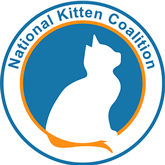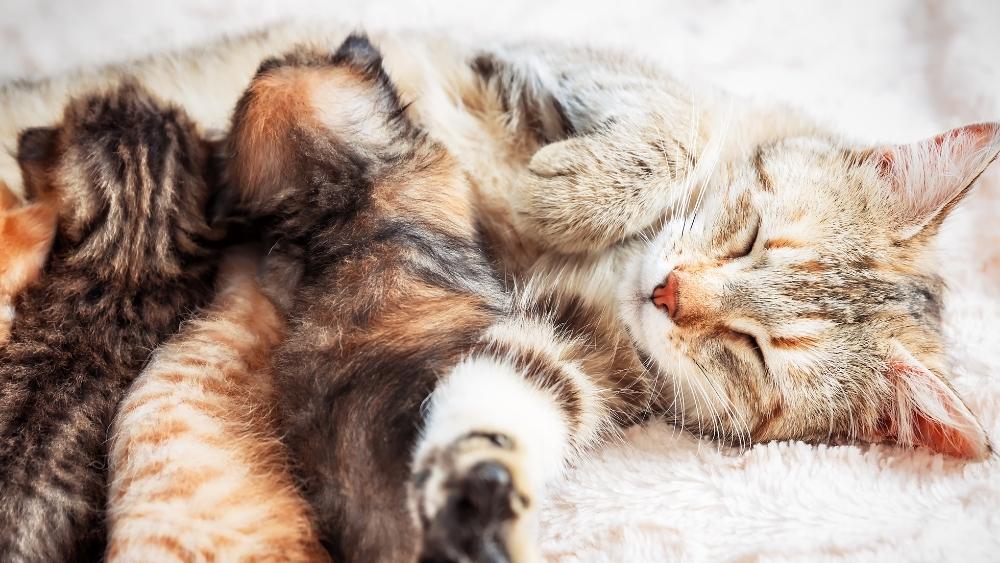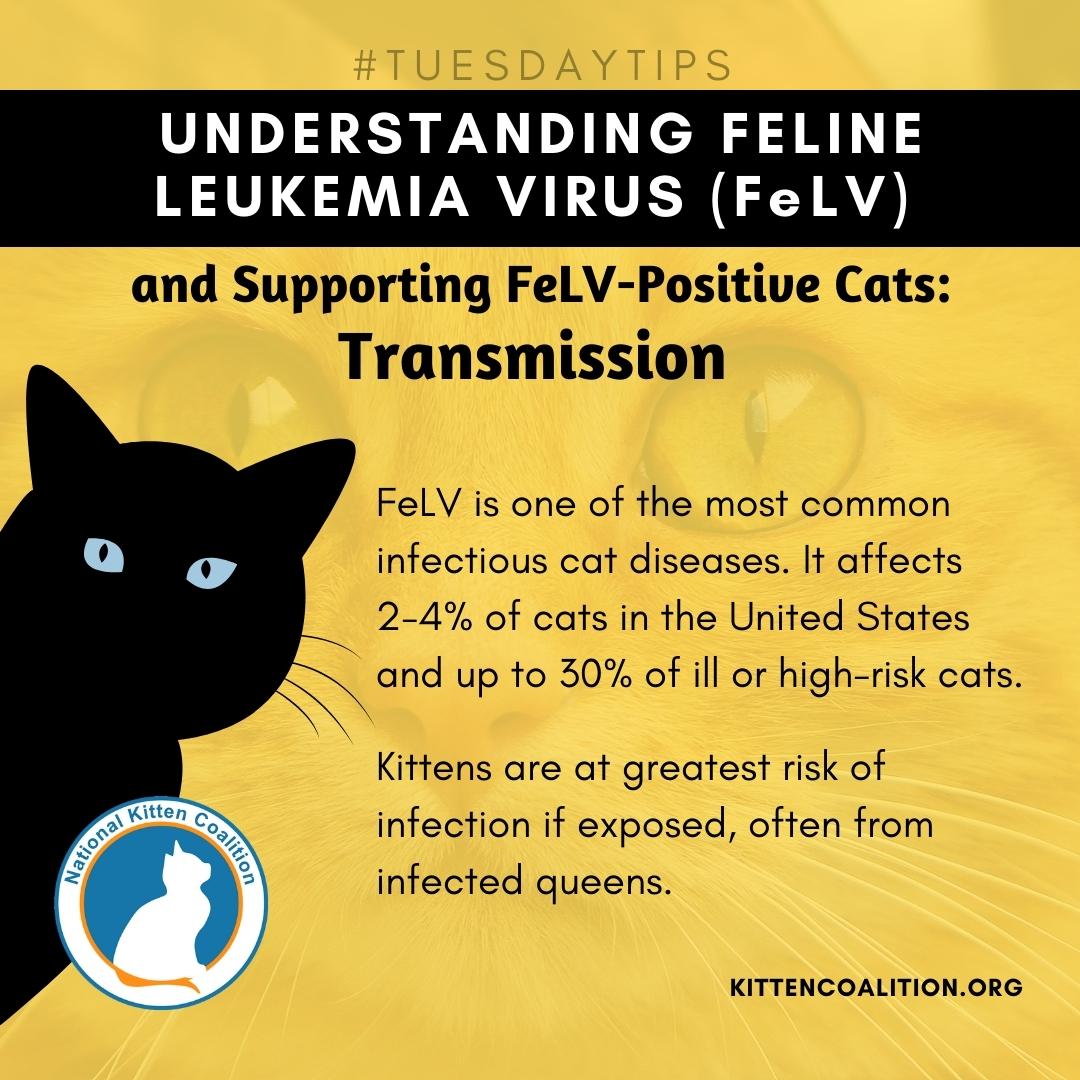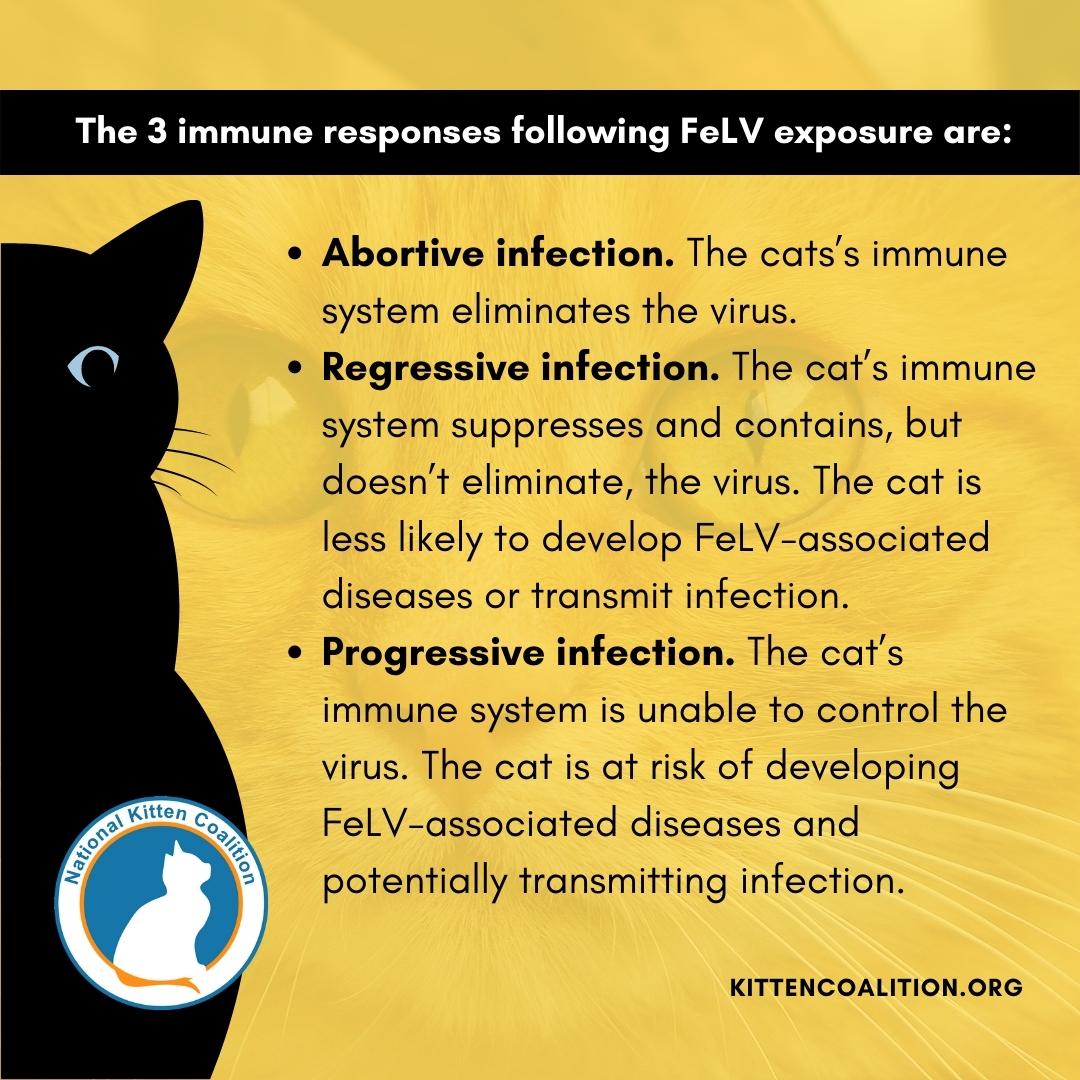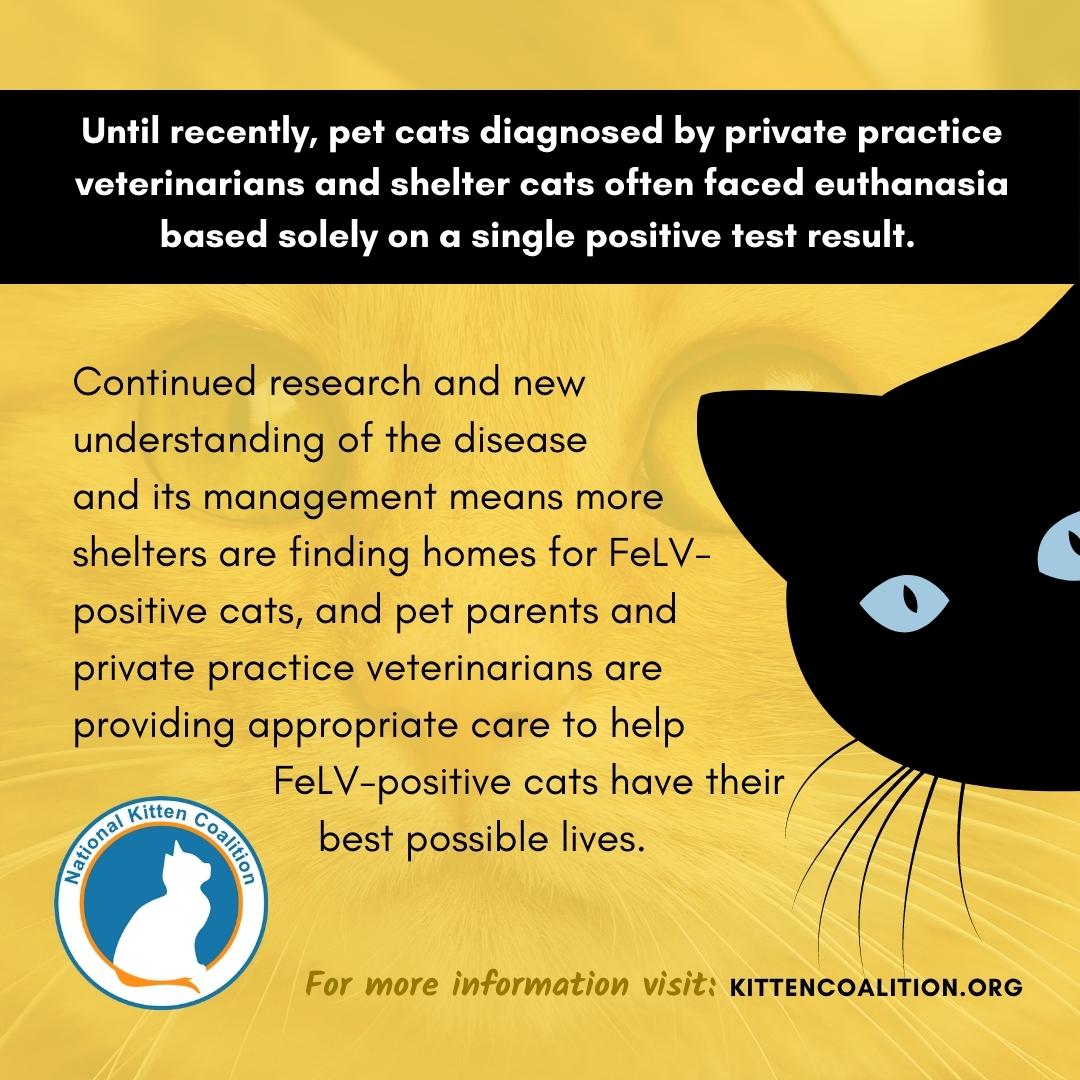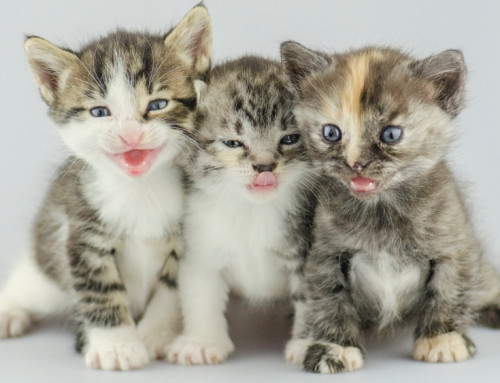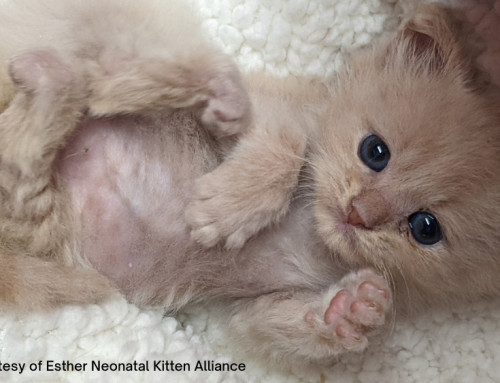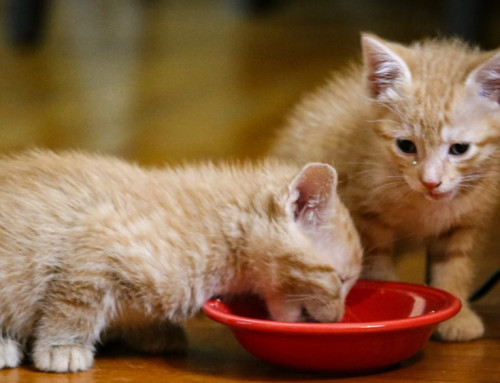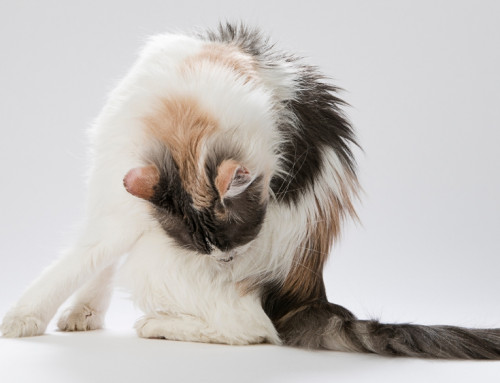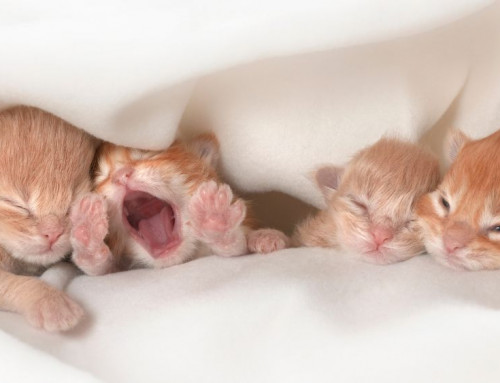Share this resource or email it to a friend!
This is part 1 of this 3-part series on FeLV. Part 2 covers symptoms and diagnosis, and part 3 covers treatment and prevention.
Feline Leukemia Virus (FeLV) was discovered in 1964. Although infection has decreased significantly over the past 25 years thanks to vaccines and accurate testing procedures, FeLV remains one of the most common infectious cat diseases.
FeLV is commonly transmitted from infected queens to their kittens who are much more susceptible to FeLV infection than adult cats and are at the greatest risk of infection if exposed. Cats at greatest risk of FeLV infection are those that may be exposed to infected cats either through bite wounds, prolonged close contact and mutual grooming; infection is rarely spread through shared litter boxes and feeding dishes.
FeLV infection affects 2-4% of cats in the United States and up to 30% of ill or high-risk cats. Cats persistently infected with FeLV shed the virus in saliva, nasal secretions, urine and feces. Although FeLV probably survives less than a few hours under normal household conditions, even healthy adult cats can become infected if sufficiently exposed.
The 3 immune responses following FeLV exposure are:
- Abortive infection. The cat’s immune system eliminates the virus.
- Regressive infection. The cat’s immune system suppresses and contains, but doesn’t eliminate the virus. The cat is less likely to develop FeLV-associated diseases or transmit infection.
- Progressive infection. The cat’s immune system is unable to control the virus. The cat is at risk of developing FeLV-associated diseases and potentially transmitting infection.
Until recently, shelter cats often faced euthanasia based solely on a single positive test result, as did pet cats diagnosed by private practice veterinarians. Thanks to continued research and new understanding of the disease and its management, there’s hope for FeLV-positive cats. Increasing numbers of shelters are finding homes for them, and pet parents and private practice veterinarians are providing appropriate care to help FeLV-positive cats have their best possible lives.
